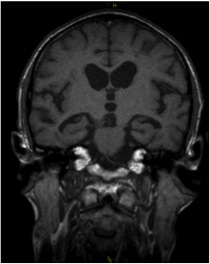
Neurodegenerative diseases are degradation changes in the brain that usually occur in old age and are accompanied by a decline in various brain functions. Alzheimer's disease, the most common form of dementia, is marked by memory impairment. Disorientation, a decrease in activity and restlessness are often encountered in the course of this illness.
There are genetically determined forms that then occur earlier than the non-hereditary, sporadic variant. Histological peculiarities such as so-called Alzheimer plaques and neurofibrillary tangles that are characteristic of Alzheimer's disease are often found in the brain. Volume changes (atrophy) are often seen in certain areas of the brain during imaging, especially in the hippocampus, a region in the temporal lobe. Depending on the manifestation of regional atrophy, it is also possible to identify other forms of dementia, such as frontotemporal dementia, vascular dementia, Parkinson's dementia, Lewy body dementia, Creutzfeld-Jakob disease, among others.
It is important, above all, to distinguish the frequently occurring Alzheimer's disease from the equally frequently occurring dementia caused by vascular factors, because vascular dementia is treatable by influencing the vascular risk factors.

